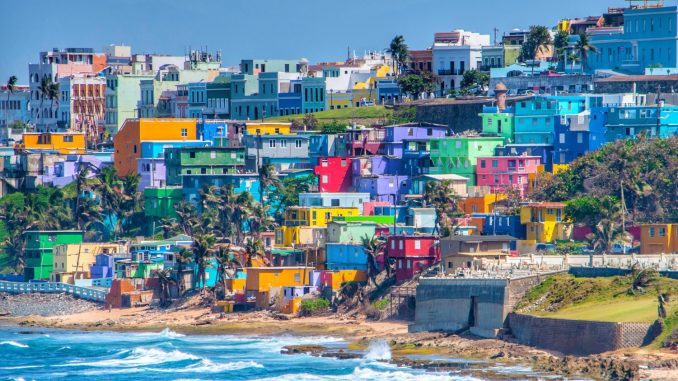
[ad_1]
A pro cannabis trade group in Puerto Rico is hoping to advance the discussion of full recreational cannabis reform on the island. To this end, they have just released a report which predicts how recreational cannabis legalization might benefit the U.S. territory, located just southeast of Cuba. According to the analysis, the maturation of the industry here would take about five years and would take a trajectory seen in the development of the casino vertical, which developed here in the early decades of the twentieth century.
The island is not the only jurisdiction to consider this kind of economic development, particularly post-Pandemic. Nor is it the only popular tourist destination. This segment of the economy is, however, critically important to the island’s economy and has become increasingly so during the second decade of this century. It currently accounts for 10% of the total economy. Indeed, before COVID, much of the critical infrastructure was damaged thanks to Hurricane Maria and tourism was used to rebuild the island.
Beyond this, the island is no stranger to the production of other recreational commodities. This includes the world’s largest rum distillery, the Bacardi factory, located in Cataño. It is also increasingly a crypto firm haven. Because of Donald Trump, 98% of the land on the island is currently considered an “opportunity zone” designed specifically to bring foreign investors here.
Cannabis Reform in Puerto Rico
Cannabis has been illegal in Puerto Rico since 1932 when Act 12 specifically outlawed the same. Penalties for planting, importation, purchase, and sale of the plant ranged from a one month to one year in jail.
In 2013, right after the success of two American state referendums in Colorado and Washington State, Representative José Luis Báez proposed decriminalization. The Governor, Alejandro Garcia Padilla, signed medical cannabis reform two years later.
This reform includes allowing patients to have a 30-day supply of the drug, but not in smokeable form. Home grow remains illegal, and patients must purchase their meds through state-licensed dispensaries. There are an estimated 115,000 Puerto Rican patients.
The Legal Status of The Island
Puerto Rico is today an unincorporated U.S. territory. It is not a state. How U.S. federal law is interpreted here is also a hotly contested topic. According to what some consider highly racist decisions enshrined in Supreme Court case law and handed down in the early part of the last century, the island, along with the Philippines and Guam, are places where constitutional rights enjoyed within the continental U.S. and incorporated territories do not apply. Indeed, according to these legal precedents, the U.S. Constitution applies within the United States proper, the District of Columbia and “incorporated territories” while only the “fundamental limitations” apply in unincorporated ones.
What this means when it comes to things like the constitutional rights of states (see the earliest cannabis reform at the state level as a constitutional amendment at this level), cannabis is certainly in a very strange gray zone.
Displacement of Locals?
One of the tragic impacts of the last hurricane was that in its aftermath, residents were often forced to sell their homes and for a variety of reasons. This has led to investment banks buying large tracts of distressed real estate here over the past several years and locals being unable to afford to live here (or at least own property and sustain a decent standard of living). This has also led to local protests against foreign development, including the privatization of public resources, like beaches.
The development of a cannabis industry in this kind of environment may well prove profitable for foreign firms. How it would benefit the local population in terms of sustainable economic redevelopment is another matter.
[ad_2]
Source link

Soyez le premier à commenter